In addition to Weibo, there is also WeChat
Please pay attention

WeChat public account
AutoBeta


2024-11-17 Update From: AutoBeta autobeta NAV: AutoBeta > News >
Share
AutoBeta(AutoBeta.net)04/29 Report--
In the first quarter of this year, wholesale sales of new energy vehicles in China were 1.19 million, up 145.4 percent from the same period last year, including 954000 pure electric vehicles, up 133.3 percent from the same period last year, and 235000 plug-in hybrid vehicles, an increase of 211.2 percent over the same period last year, according to data from the Federation of Capitations. against the backdrop of booming sales of new energy vehicles, many of Beijing Hyundai's new energy models are on the verge of stopping production.
According to the Daily Business News, a number of new energy models owned by Hyundai in Beijing are on the verge of stopping production. Liu Kaijun (pseudonym), a salesman at a 4S store in Beijing Hyundai, said: "there are no new energy vehicles in the store at present. Festa and Anshino Pure Electric have been discontinued. Mingtu Pure Electric should also have a configuration car that can be ordered, but the booking cycle does not dare to guarantee you. " And the above-mentioned Liu Kaijun (pseudonym) is located in the 4S store, there are five exhibition cars, and all are fuel models. In addition, the Daily Business News reported that from April 22 to 25, only one store in several Beijing Hyundai 4S stores displayed a pure electric car with a name picture. in addition, no new energy models have been found to show, test drive or drive.
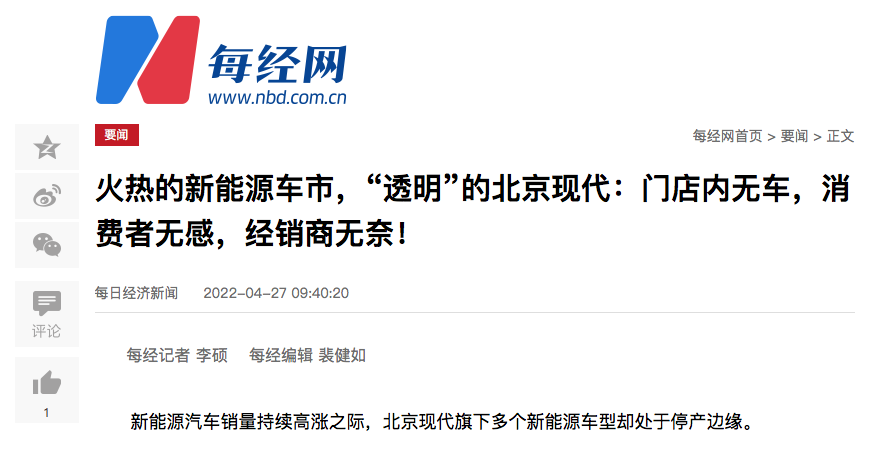
In this regard, a number of sales staff confirmed that the official website still shows that the Festa pure electric vehicles on sale have been discontinued, leading and Sonata plug-in hybrid models cannot be ordered, and only one of the three configurations of Mingtu pure electric vehicles is on sale. the other two are also in a state of non-booking. In response to the above news, on April 24, the Daily Economic News sought confirmation from Beijing Hyundai officials, and Beijing Hyundai official customer service responded: "there is no news that Festa pure electric models are completely out of production, and it is suggested to consult at dealers' stores." So far, Beijing Hyundai has not made a clear response to the suspension of production of new energy vehicles mentioned above.
The automotive industry has learned from the Beijing Hyundai website that there are currently five new energy models on sale in Beijing Hyundai, including Tusheng L hybrid models, Mingtu pure electric models, Festa pure electric models, lead plug-in hybrid models and Sonata plug-in hybrid models. Among them, the new Sonata plug-in hybrid model was launched in August 2018, the vehicle price is 189800-223800, and then Beijing Hyundai Anchino Pure Electric and Festa Pure Electric also went on sale in November 2019 and February 2020 respectively. From the time point of product launch, it is not too late for Beijing Hyundai to enter the new energy market. But in spite of this, sales of new energy models owned by Beijing Hyundai are not doing well. According to the data, only 630 vehicles were insured in the first three quarters of 2020, while Festa Pure Electric sold only 1333 vehicles in 2020. Sales were also poor in the past 2021, with data showing that the cumulative sales of 1.6L PHEV, Festa Pure Electric, Ta Pure Electric and Mingtu Pure Electric in 2021 were 816,1241 and 118 respectively.
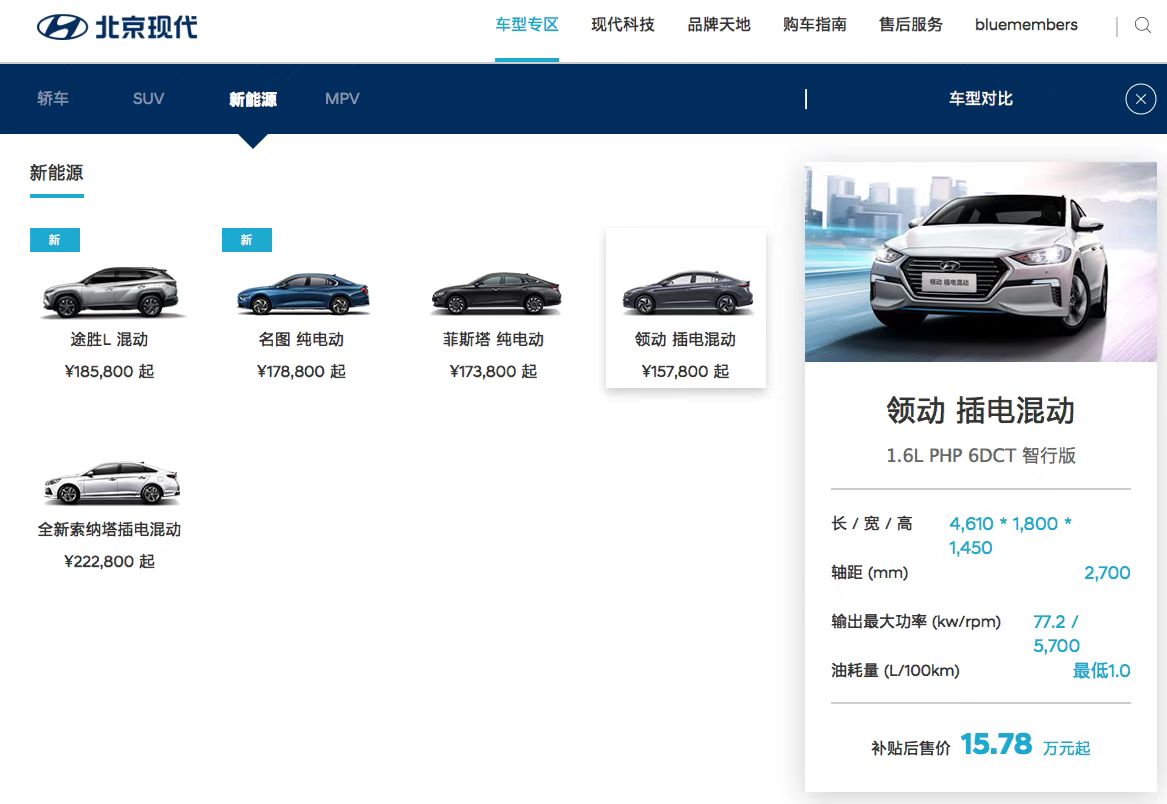
According to public data, Beijing Hyundai was established on October 18, 2002, jointly funded by Beijing Automobile Investment Co., Ltd. and Korea Hyundai Automotive Co., Ltd., with a registered capital of 2.036 billion US dollars, 50% each of China and South Korea, and a 30-year joint venture. On March 18 this year, Beijing Automobile issued an announcement on the Hong Kong Stock Exchange that subsidiary Beijing Automotive Investment Co., Ltd. and Hyundai Automotive Co., Ltd. entered into an amendment agreement, agreeing to increase the capital of Beijing Hyundai by 942 million US dollars (about 5.993 billion yuan) according to its proportion of the current registered capital of Beijing Hyundai, and the two sides will inject 471 million US dollars respectively. When the capital increase is completed, Beijing Hyundai's registered capital will increase to $2.978 billion, with both parties still accounting for 50 per cent of Beijing Hyundai's stake. According to the announcement, Beijing Hyundai has a net loss of 4.995 billion yuan after tax in 2021 and 6.284 billion yuan in 2020, with a current net asset of 37.965 billion yuan.
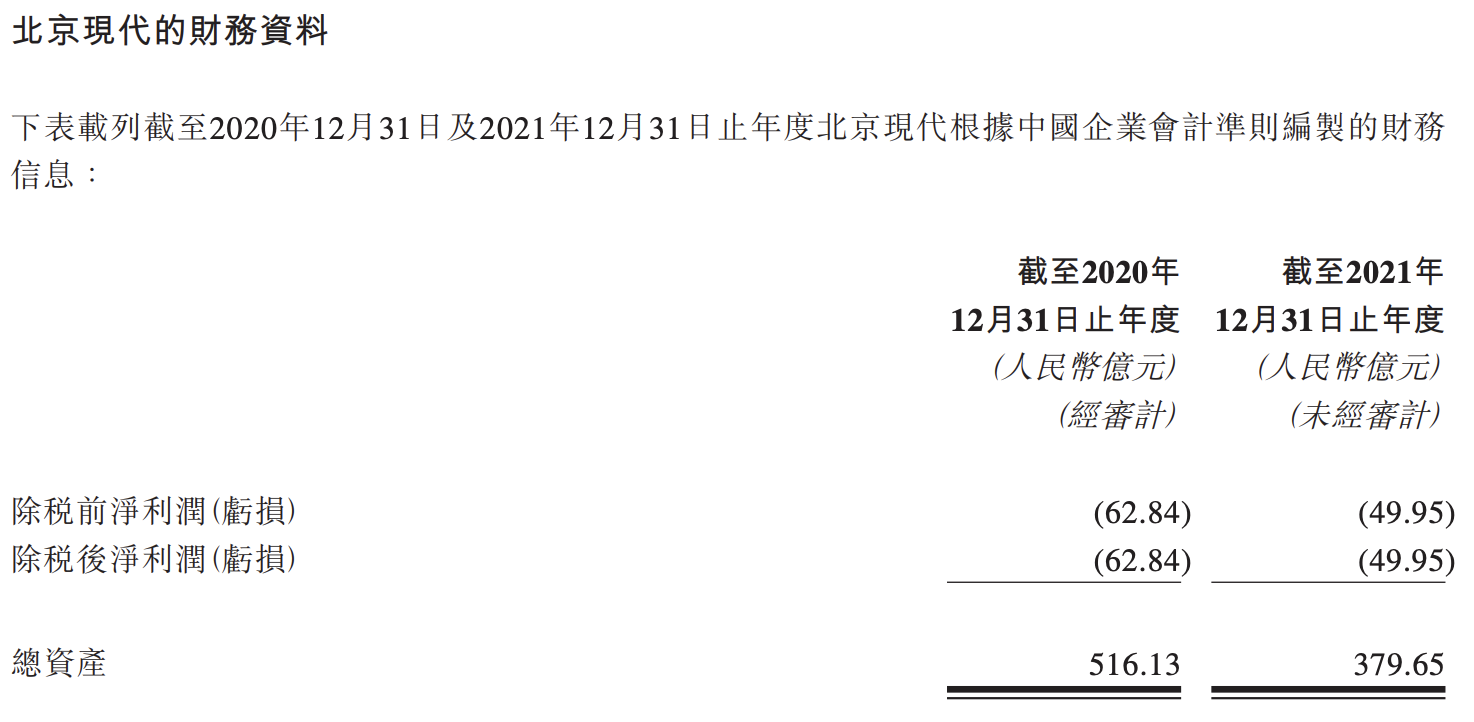
Since its establishment in 2013, Beijing Hyundai has a history of 20 years. Sales data show that its annual sales from 2002 to 2016 were 1.03 million, 1.16 million, 1.06 million and 1.14 million respectively. 2016 was the best year for Beijing Hyundai in these four years. But after this record, Beijing Hyundai sales began to decline and showed a continuous downward trend for five consecutive years, with sales of 755659 vehicles, 782163 vehicles, 685126 vehicles and 384782 vehicles respectively from 2017 to 2020. In the past 2021, Beijing Hyundai sold a cumulative total of 359851 vehicles, a far cry from its annual sales of 560000, with a completion rate of only 55.4 per cent.
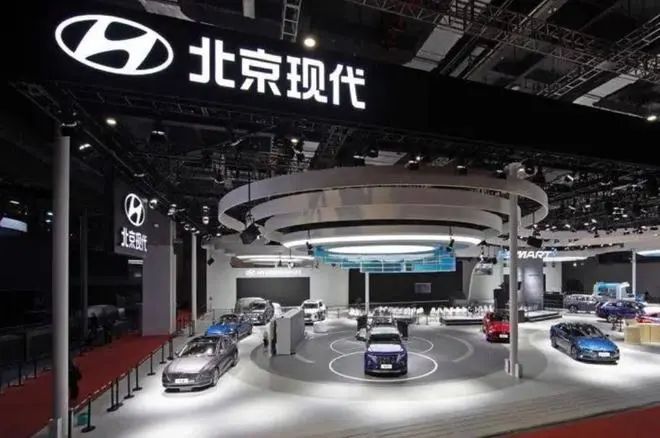
With regard to the continuous decline in the annual sales of Hyundai cars in Beijing, people in the industry believe that Beijing Hyundai has not innovated in strategy and models according to the changes in the market, and the process of localization is relatively slow, and it has introduced too many similar models at the same time. As a result, it is unable to respond to changes in the market quickly while the distribution of marketing resources is uneven. In addition, in terms of new energy models, At present, Beijing Hyundai's new energy models are basically "oil to electricity" products.
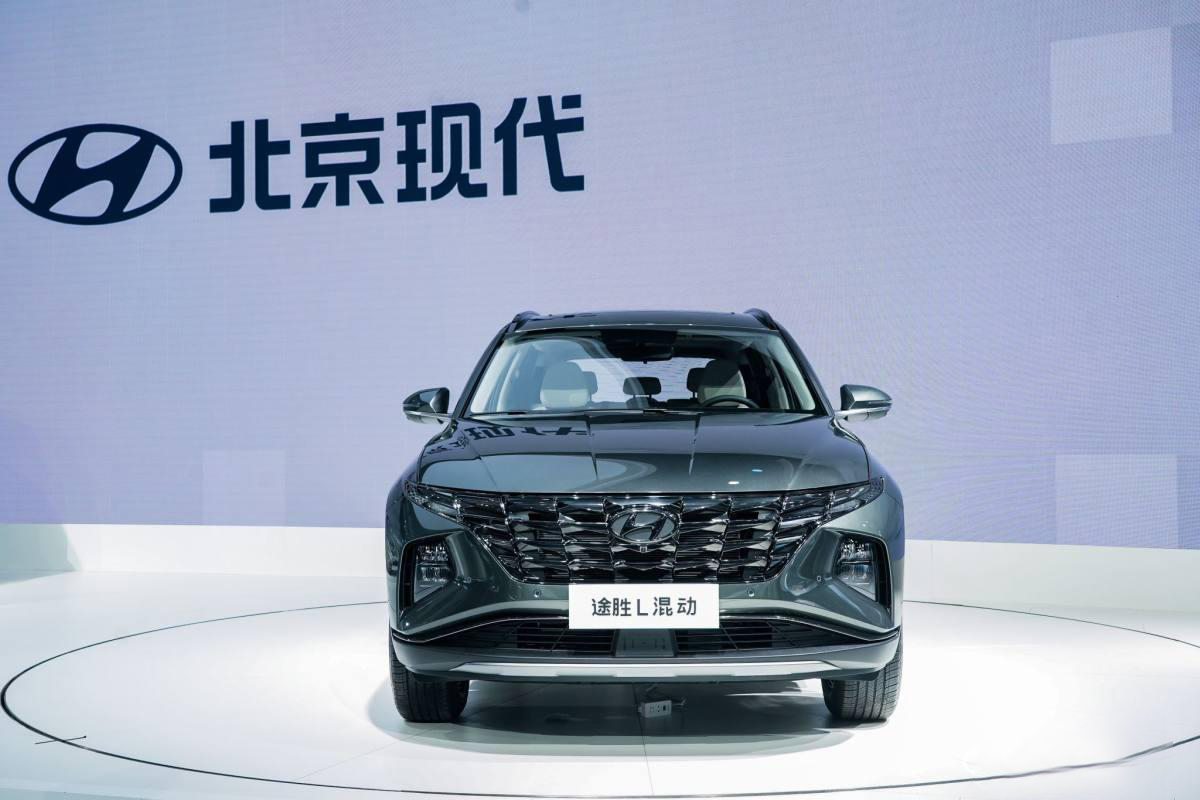
In this regard, according to Beijing Hyundai's plan, this year, Beijing Hyundai will improve the overall utilization of production capacity and increase the launch of new energy models by adjusting the product structure and planning to turn its factories in China into an export base. On March 2 this year, Hyundai announced a new product strategic plan, including plans for future electric models. It plans to launch 17 new all-electric models by 2030, of which 11 are from Hyundai, including three sedans, six SUV, a light commercial vehicle and a new vehicle. The other six models are from its luxury brand Genisse, which includes two passenger cars and four SUV models. In addition, it says Hyundai will have only electric models in Europe by 2035, will sell all electric models worldwide in 2040, and will stop selling fuel vehicles altogether.
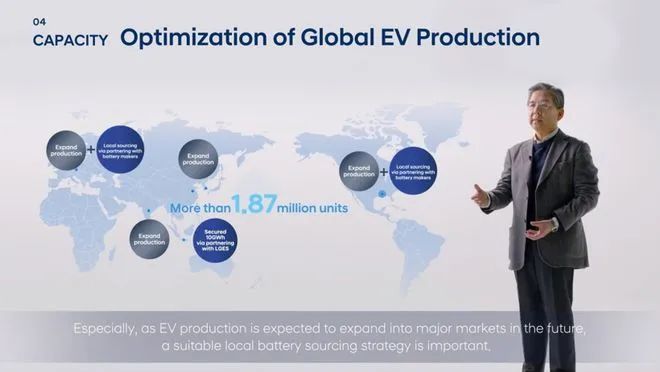
In terms of global pure electric vehicle sales, Hyundai plans to increase annual sales to 1.87 million by 2030 and ensure a 7 per cent global market share. It is understood that Beijing Hyundai has said that it will launch two exclusive EV models in the Chinese market from 2023 to strengthen the product line of electric cars. in addition, Hyundai will launch a modified model to Festa pure electric car this year, and will also launch a cross-border electric vehicle internally codenamed "OE" this year, and another global new energy model will be launched by the end of 2023 or early 2024. IONIQ6 and IONIQ7 have basically confirmed that they will be introduced into the Chinese market at the same time and are expected to be put on the market in 2024.
Welcome to subscribe to the WeChat public account "Automotive Industry Focus" to get the first-hand insider information on the automotive industry and talk about things in the automotive circle. Welcome to break the news! WeChat ID autoWechat
Views: 0
*The comments in the above article only represent the author's personal views and do not represent the views and positions of this website. If you have more insights, please feel free to contribute and share.











© 2024 AutoBeta.Net Tiger Media Company. All rights reserved.